Justice and Islam: An Introduction
In the general perspective, justice is a complex concept touching almost every aspect of human life. As the term itself denotes, (the word justice is derived from the Latin word Jungere meaning to bind or to tie together), it is instrumental in harmonizing divergent values and organizing people together into a right and fair order of relationships.
It has been defined by many. According to Salmond, "Justice is meant to distribute the due share to everybody". At the same time, Dr. Raphael observes it as a "protector of the rights of the individual as well as the order of society." C.E. Merriam says “justice consists of a system of understanding and a procedure through which each is accorded what is agreed upon as fair." The essence of the definition constructed by Plato is giving to every man what is his due. Summing up, justice is a mechanism of securing every person's rights in a fair manner. It commands harmony among all the people and orderly living, protecting the rights of all in a just and fair way.
In the Islamic perspective, justice is to put everything in its correct and accurate place. From this way of thinking, we can unearth at least three prominent aspects of justice. First one is to give someone a charge that is apt and suitable for his calibre. The second one is to form decisions in accordance with the situation or someone about the subject, and the third one is to put wealth in the rightful hands.
The justice system envisaged by the Islam is comprehensive justice that dwarfs all aspects of difference such as religion, caste, creed, colour, language, nation, poverty, richness, power, and so on. It views all only as human beings and nothing more and nothing less. Its foundation lays down by the command of Almighty Allah ﷻ. “God commands justice and fair dealing…” (Quran 16: 90) and “O you, who believe, be upright for God and (be) bearers of witness with justice…” (Quran 5: 8). Its concept is wide, broad, boundless and unlimited. Allah is most just of all judges, and he made himself forbidden from any kind of injustice and commanded the same to all his worshippers too. He says “O my slaves, I have forbidden injustice for myself and forbade it also for you. So avoid being unjust to one another” (Muslim).
Coming to the case of the Holy Quran, it has provided a vast space in this regard. The Quran structured the whole shape and size of the justice system of Islam. The Holy Quran gives a clear picture of how much Islam values the virtue of justice in the human life, its wide scope in the interpersonal relationships, be it within the family or community or be in the interactions between the communities or nations. It comprises justice to kith and kin, the orphan, the destitute, the slave, the needy, etc. It stretches into more than twenty-five relevant verses; some of them are as follows:
- “Certainly, we sent our messengers with clear signs and sent down with them the Book and the Measure in order to establish justice among the people...” (Quran 57:25).
- “O you, who believe, Stand out firmly for justice, as witnesses to Allah, even if it be against yourselves, your parents, and your relatives, or whether it is against the rich or the poor…”(Quran 4: 135)
- “Let not the hatred of a people swerve you away from justice. Be just, for this is closest to righteousness…” (Quran 5: 8)
- “God does not forbid you from doing good and being just to those who have neither fought you over your faith nor evicted you from your homes…” (Quran 60: 8).
These verses give a clear message of our obligation to stand for the ultimate cause of justice irrespective of its repercussions and irrespective of our personal affiliations or individual interests.
Coming to the Prophet Muhammad ﷺ, his life was entirely in accordance with these Quranic verses that promote justice in fullest mode. His dealings with affairs of people, as their supreme judge, reformer, apostle, and leader, did not distinguish between believers and non-believers, friends and foes, high and low and rich and poor. He also trained such a community who stands for the sole cause of justice.
There are numerous incidents in which Prophet Muhammad ﷺ and his companions placed implementation of justice above their personal interests.
It is reported that a woman belonging to a highly respected family of Medina named Makhzūm was proved guilty of theft. As punishment, the palm of the right hand had to be cut. At this juncture, some prominent companions of Prophet Muhammad ﷺ such as Usāmah Ibn Zayd tried to save her from the execution of the punishment to protect the prestige of the Quraish, Makhzūm family hails from Quraish- intact. The prophet ﷺ refused to forgive and executed the punishment. After that, he made an ever-memorable statement that deeply strengthened the soul of justice: “several communities ruined themselves in the past because they only executed punishment of theft among those who are poor and ignored the same of the elite. By Allah, if Fāṭimah, daughter of Muhammad would have committed theft, her hand would have been severed” (Al Bukharī).
At the time of Caliph Umar Ibn Al Khaṭṭāb, a property suit was filed before the Islamic court of justice. One of the two parties was Ali Ibn Abi Ṭālib (one of the most respected companions of Prophet Muhammad ﷺ and fourth ruler of Islamic Caliphate), and the other was a Jew, one of the common citizens of the time in Medina state. In the trial of the case, Caliph invited Ali Ibn Abi Ṭālib to explain his side and produce evidence in support of his side, by addressing him as Abā al-Hasan. But he disliked such kind of addressing and expressed it openly. After the court trial, caliph asked him about it. Then, Ali Ibn Abi Ṭālib said that: “when you called me Abū Al-Hasan, that reveals respect and favour, I felt afraid that the Jew might be denied of his due justice. It was the cause behind my dislike.” (ʿUmar bin Ahmad, Bighyat al-Ṭalab min tārīkh Ḥalab)
In essence, implementation of justice is a core obligation of each and every believer of Islam. In this section entitled "Justice", we will discuss; further, the contributions and indispensable role played by Islam, its Prophet ﷺ, his companions and their successors towards the soul and physique of justice.
REFERENCES
Khalid Bin Ismail, Islam and the Concept of Justice, Centre For Islamic Thought and Understanding Universiti Teknologi MARA Perlis
Dr. Tufail Ahmad Qureshi, Justice in Islam, 1982
Lawrence Rosen, Islam and the Rule of Justice: Image and Reality in Muslim Law and Culture, Chicago University Press, 2018
Deina abdelkader, social justice in Islam, International Institute of Islamic Thought, U.S.A
Faiz abu shaikhah, Ravā’iʿ min al-ʿAdl al-Islāmī, Dār al-Manāhij, Oman, 2002
(Adv Abdul Gafoor Hudawi is Research scholar, at School of Legal Studies, Kannur University)
Disclaimer
The views expressed in this article are the author’s own and do not necessarily mirror Islamonweb’s editorial stance.

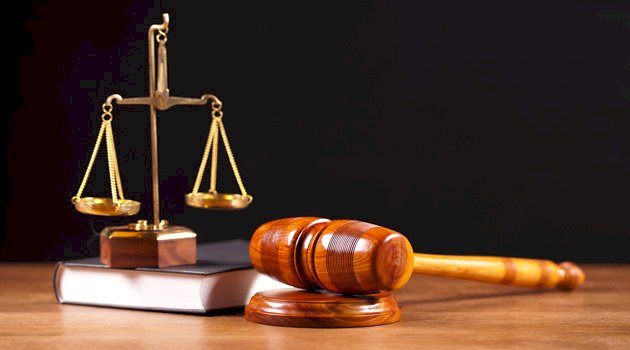


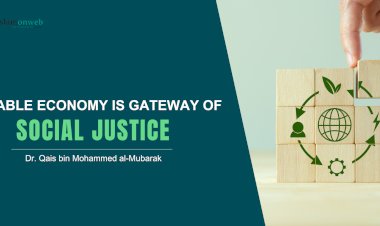

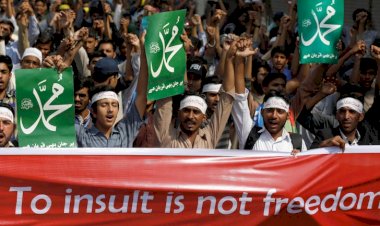
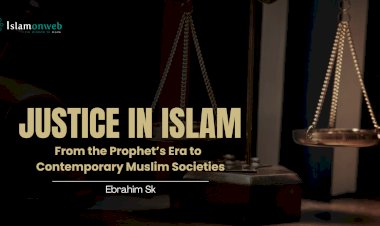

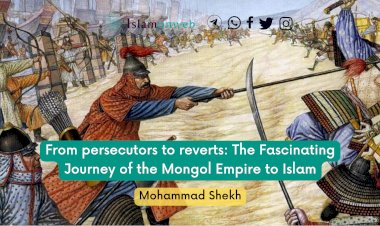














Leave A Comment